The average cost of Bone Marrow Transplant in India approximately ranges between INR 2078750 to 2910250 (USD 25000 to 35000)
A bone marrow transplant becomes necessary when bone marrow cells malfunction. Typically employed for life-threatening conditions such as leukemia, severe aplastic anemia, congenital neutropenia, lymphoma, and some genetic diseases, this treatment involves replacing damaged bone marrow with healthy stem cells.
| City | Minimum Cost (USD) | Minimum Cost (INR) | Maximum Cost (USD) | Maximum Cost (INR) |
|---|---|---|---|---|
| Ghaziabad | USD 22500 | 1870875 | USD 31500 | 2619225 |
| Hyderabad | USD 25000 | 2078750 | USD 35000 | 2910250 |
| Faridabad | USD 22500 | 1870875 | USD 31500 | 2619225 |
| Panjim | USD 20000 | 1663000 | USD 28000 | 2328200 |
| Chennai | USD 25000 | 2078750 | USD 35000 | 2910250 |
| Bangalore | USD 25000 | 2078750 | USD 35000 | 2910250 |
Treatment cost
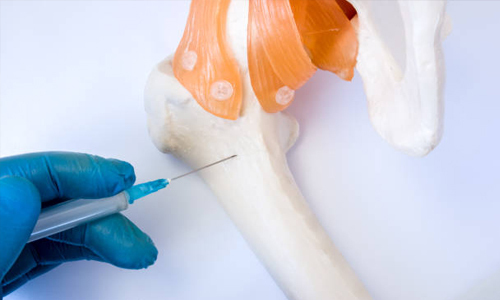
Gurgaon, India
USD 22750 USD 26000
Verfifed
We provide numerous services for your medical journey, including:
We provide packages at economical prices with a number of additional benefits which make it a better opportunity than spending actual hospital costs with singular benefits.
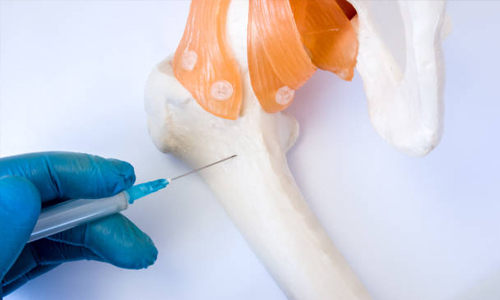
We provide numerous services for your medical journey, including:
We provide packages at economical prices with a number of additional benefits which make it a better opportunity than spending actual hospital costs with singular benefits.
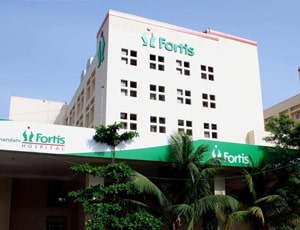
Types of Bone Marrow Transplant in Fortis Hiranandani Hospital and its associated cost
| Treatment Option | Approximate Cost Range (USD) | Approximate Cost Range (INR) |
|---|---|---|
| Bone Marrow Transplant (Overall) | 15184 - 30496 | 1249121 - 2502271 |
| Autologous BMT | 20348 - 25276 | 1660749 - 2077907 |
| Allogeneic BMT | 25256 - 30480 | 2077496 - 2485088 |
| Syngeneic BMT | 15218 - 20298 | 1249655 - 1667036 |
DOCTORS IN 13 SPECIALITIES
FACILITIES & AMENITIES
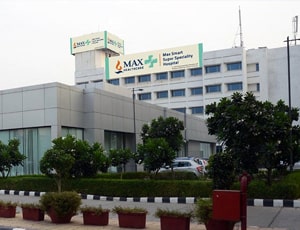
Types of Bone Marrow Transplant in Max Smart Super Speciality Hospital and its associated cost
| Treatment Option | Approximate Cost Range (USD) | Approximate Cost Range (INR) |
|---|---|---|
| Bone Marrow Transplant (Overall) | 15263 - 30333 | 1243431 - 2496975 |
| Autologous BMT | 20297 - 25403 | 1672597 - 2084735 |
| Allogeneic BMT | 25490 - 30554 | 2084445 - 2494865 |
| Syngeneic BMT | 15198 - 20220 | 1244303 - 1664496 |
DOCTORS IN 12 SPECIALITIES
FACILITIES & AMENITIES
Types of Bone Marrow Transplant in Max Super Specialty Hospital, Shalimar Bagh and its associated cost
| Treatment Option | Approximate Cost Range (USD) | Approximate Cost Range (INR) |
|---|---|---|
| Bone Marrow Transplant (Overall) | 15151 - 30412 | 1248812 - 2494585 |
| Autologous BMT | 20315 - 25380 | 1672409 - 2085052 |
| Allogeneic BMT | 25389 - 30373 | 2075944 - 2505530 |
| Syngeneic BMT | 15220 - 20321 | 1250951 - 1670401 |

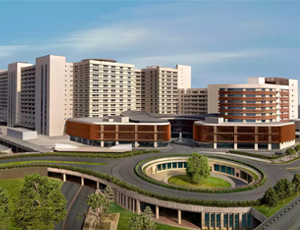
The Amrita Institute of Medical Sciences and Research Centre was established in 1998 by Mata Amritababdamayi Devi. It has 7 branches all over India and is accredited by ISO, NABH, and NABL. The hospitals offer a wide range of specialty and primary healthcare and medical services. It has a team of 800 doctors along with 2600 plus beds including 534 critical care beds and 81 specialties. The hospitals offer advanced and cutting-edge medical treatments ranging from cardiac sciences to radiation oncology. It has 12 super-specialty departments along with 45 other departments.
Asia’s first Bilateral Hand Transplant Surgery was done at Amrita Hospital, Kochi, in 2015. Many awards have been received by the hospitals such as National Healthcare Excellence Award for Best Hospital (CSR Category) in India by FICCI in 2013, India Healthcare Award for the Paediatric Heart Program in 2014, British Medical Journal Award for the Best Surgical Team in South Asia, 2015, and FICCI Healthcare Excellence Awards for Patient Safety and Innovation in Medical Technology. What truly sets the medical services provided by AIMS is the commitment to treating every patient with the utmost kindness, respect, and empathy. The goal is to empower patients and take charge of their well-being through healthcare, medical technologies, and education that is patient-centric for early intervention and prevention.
Amrita Hospital in Faridabad is a multispeciality hospital that provides patients with emergency, consultation, diagnostic, rehabilitative treatment, and recovery. It comprises centers for Radiation Oncology, Neurosciences, Bone diseases, Gastro-sciences, Mother and Child care, Cardiac sciences, and Trauma transplants through fully-automated innovative laboratories, the latest cardiac and cath labs, and advanced medical imaging. It houses 670 faculty members, 4500 supporting staff, and a multidisciplinary children’s infirmary with fetal and maternal medicines and pediatric subspecialties. The hospital also runs India’s most comprehensive facility for infectious diseases.
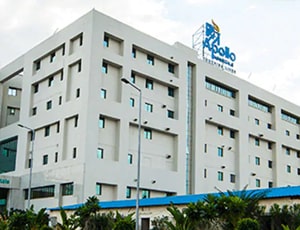
Types of Bone Marrow Transplant in Apollo Hospital and its associated cost
| Treatment Option | Approximate Cost Range (USD) | Approximate Cost Range (INR) |
|---|---|---|
| Bone Marrow Transplant (Overall) | 16617 - 33842 | 1359961 - 2808332 |
| Autologous BMT | 22191 - 28467 | 1855047 - 2343981 |
| Allogeneic BMT | 28610 - 33689 | 2317207 - 2828077 |
| Syngeneic BMT | 16758 - 22539 | 1363168 - 1885028 |
DOCTORS IN 13 SPECIALITIES
FACILITIES & AMENITIES
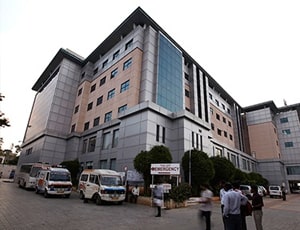
Types of Bone Marrow Transplant in BGS Gleneagles Global Hospitals and its associated cost
| Treatment Option | Approximate Cost Range (USD) | Approximate Cost Range (INR) |
|---|---|---|
| Bone Marrow Transplant (Overall) | 16883 - 34252 | 1376501 - 2820255 |
| Autologous BMT | 22142 - 28417 | 1883240 - 2255076 |
| Allogeneic BMT | 27659 - 34246 | 2324968 - 2806547 |
| Syngeneic BMT | 17049 - 22670 | 1365345 - 1813390 |
DOCTORS IN 14 SPECIALITIES
FACILITIES & AMENITIES

Types of Bone Marrow Transplant in Indraprastha Apollo Hospital and its associated cost
| Treatment Option | Approximate Cost Range (USD) | Approximate Cost Range (INR) |
|---|---|---|
| Bone Marrow Transplant (Overall) | 16751 - 33871 | 1376960 - 2784644 |
| Autologous BMT | 22478 - 27702 | 1883286 - 2342574 |
| Allogeneic BMT | 28249 - 33168 | 2351224 - 2802503 |
| Syngeneic BMT | 16761 - 22759 | 1409936 - 1855492 |
DOCTORS IN 14 SPECIALITIES
FACILITIES & AMENITIES
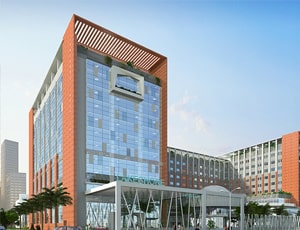
Types of Bone Marrow Transplant in VPS Lakeshore Hospital and its associated cost
| Treatment Option | Approximate Cost Range (USD) | Approximate Cost Range (INR) |
|---|---|---|
| Bone Marrow Transplant (Overall) | 15150 - 30572 | 1247778 - 2508029 |
| Autologous BMT | 20348 - 25349 | 1657403 - 2088657 |
| Allogeneic BMT | 25271 - 30559 | 2074296 - 2500717 |
| Syngeneic BMT | 15159 - 20335 | 1254515 - 1666603 |
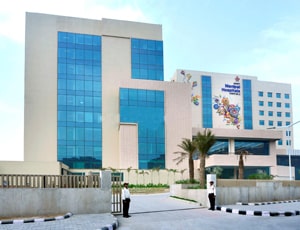
Types of Bone Marrow Transplant in Manipal Hospital, Dwarka and its associated cost
| Treatment Option | Approximate Cost Range (USD) | Approximate Cost Range (INR) |
|---|---|---|
| Bone Marrow Transplant (Overall) | 15176 - 30516 | 1244186 - 2490010 |
| Autologous BMT | 20345 - 25407 | 1666513 - 2088649 |
| Allogeneic BMT | 25333 - 30349 | 2083559 - 2491369 |
| Syngeneic BMT | 15170 - 20332 | 1252781 - 1661805 |
DOCTORS IN 13 SPECIALITIES
FACILITIES & AMENITIES
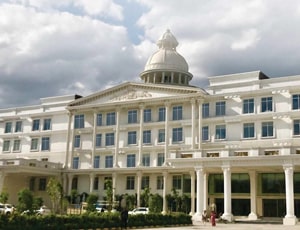
Types of Bone Marrow Transplant in Dr. Rela Institute and Medical Centre and its associated cost
| Treatment Option | Approximate Cost Range (USD) | Approximate Cost Range (INR) |
|---|---|---|
| Bone Marrow Transplant (Overall) | 16966 - 33050 | 1404290 - 2769558 |
| Autologous BMT | 22618 - 28525 | 1843119 - 2317557 |
| Allogeneic BMT | 27520 - 33933 | 2294069 - 2730678 |
| Syngeneic BMT | 16670 - 22604 | 1412015 - 1875832 |

Types of Bone Marrow Transplant in Sarvodaya Hospital and Research Centre and its associated cost
| Treatment Option | Approximate Cost Range (USD) | Approximate Cost Range (INR) |
|---|---|---|
| Bone Marrow Transplant (Overall) | 15205 - 30403 | 1243787 - 2486346 |
| Autologous BMT | 20285 - 25412 | 1662718 - 2074026 |
| Allogeneic BMT | 25302 - 30434 | 2083751 - 2502674 |
| Syngeneic BMT | 15199 - 20252 | 1247916 - 1659017 |
DOCTORS IN 14 SPECIALITIES
FACILITIES & AMENITIES
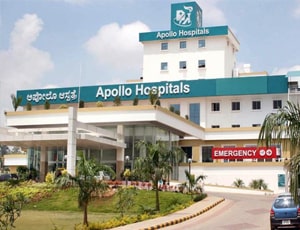
Types of Bone Marrow Transplant in Apollo Hospitals Bannerghatta and its associated cost
| Treatment Option | Approximate Cost Range (USD) | Approximate Cost Range (INR) |
|---|---|---|
| Bone Marrow Transplant (Overall) | 16776 - 33719 | 1412933 - 2811411 |
| Autologous BMT | 22619 - 28058 | 1884257 - 2309727 |
| Allogeneic BMT | 27676 - 34045 | 2328385 - 2807432 |
| Syngeneic BMT | 17042 - 22667 | 1367269 - 1842385 |
DOCTORS IN 13 SPECIALITIES
FACILITIES & AMENITIES
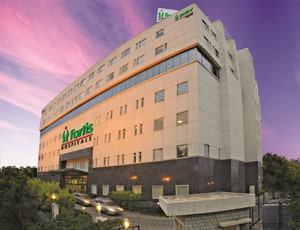
Types of Bone Marrow Transplant in Fortis Hospital and its associated cost
| Treatment Option | Approximate Cost Range (USD) | Approximate Cost Range (INR) |
|---|---|---|
| Bone Marrow Transplant (Overall) | 15246 - 30336 | 1246524 - 2499207 |
| Autologous BMT | 20278 - 25395 | 1665608 - 2074390 |
| Allogeneic BMT | 25282 - 30417 | 2080734 - 2484783 |
| Syngeneic BMT | 15203 - 20278 | 1250279 - 1668924 |
DOCTORS IN 12 SPECIALITIES
FACILITIES & AMENITIES
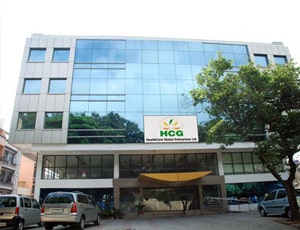
Types of Bone Marrow Transplant in HCG Kalinga Rao Road and its associated cost
| Treatment Option | Approximate Cost Range (USD) | Approximate Cost Range (INR) |
|---|---|---|
| Bone Marrow Transplant (Overall) | 15157 - 30493 | 1250155 - 2504019 |
| Autologous BMT | 20323 - 25305 | 1663260 - 2082274 |
| Allogeneic BMT | 25314 - 30330 | 2084262 - 2497520 |
| Syngeneic BMT | 15165 - 20392 | 1254264 - 1668629 |
DOCTORS IN 3 SPECIALITIES
FACILITIES & AMENITIES
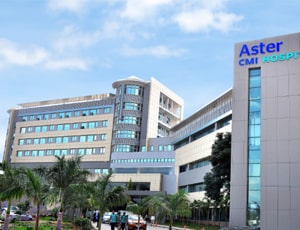
Types of Bone Marrow Transplant in Aster CMI Hospital and its associated cost
| Treatment Option | Approximate Cost Range (USD) | Approximate Cost Range (INR) |
|---|---|---|
| Bone Marrow Transplant (Overall) | 15285 - 30373 | 1252174 - 2492497 |
| Autologous BMT | 20211 - 25254 | 1657586 - 2075460 |
| Allogeneic BMT | 25496 - 30330 | 2073356 - 2509058 |
| Syngeneic BMT | 15254 - 20268 | 1246803 - 1659629 |
DOCTORS IN 13 SPECIALITIES
FACILITIES & AMENITIES
A bone marrow transplant is a process that involves harvesting cells for transplantation from the bone marrow which is the spongy tissue found in the cavities of certain bones such as the hip bones. It is also known as Stem Cell transplant. The bone marrow is rich in stem cells, which are capable of developing into various types of blood cells.
The main objective of bone marrow transplantation (BMT) is to transplant healthy bone marrow cells into a patient after the patient's unhealthy bone marrow has been treated to eliminate cancerous cells.
BMT has been used successfully in the treatment of the following diseases such as:
There are two main types of bone marrow transplants (BMT), also known as stem cell transplants, based on the source of the stem cells. These are:
To ensure the patient is ready for a stem cell transplant, a series of tests will assess the overall health and condition, and A suitable donor identified for allogeneic transplants. This can be a sibling, an unrelated donor, or, in some cases, a half-matched family member (haploidentical).
This test may take a few days, a thin tube, known as a central line, is placed in a large vein in the chest or neck. This central line stays in place throughout the treatment, allowing the transplant team to deliver stem cells, medications, and blood products. This is called conditional therapy.
Following the completion of all pre-surgery testing, the following goals would be attained by performing Ablation therapy by the oncologists through chemotherapy and radiation to
Collection of the stem cells: For autologous transplants, the patient's stem cells are collected. This is usually done through a process called apheresis, where blood is drawn, stem cells are separated, and the remaining blood is returned to the patient.
For allogeneic transplants, the donor undergoes a similar process to collect stem cells.
Transplantation: The harvested stem cells are infused into the patient through a central venous catheter, similar to a blood transfusion. The infused stem cells travel to the bone marrow, where they begin to produce new blood cells.
Following the transplant, supportive care is provided to prevent and treat infections, side effects of treatments, and complications. This includes frequent blood tests, close monitoring of vital signs, strict measurement of fluid input and output, daily weigh-ins, and providing a safe and clean environment.
Engraftment: Engraftment refers to the successful establishment of the transplanted cells in the patient's bone marrow. This is monitored by regular blood tests to check for the presence of donor cells.
While undergoing bone marrow infusions, the patient could feel Pain, Chills, Fever, and Chest Pain.
Following a stem cell transplantation until the bone marrow can sufficiently produce blood cells, patients are at an increased risk of infections and diseases. To prevent contamination, individuals undergoing stem cell transplantation are typically placed in isolation rooms. This precautionary measure lasts for over a week or until the blood cell levels return to normal.
Isolation is more important in the case of allogeneic stem cell transplant than autologous stem cell transplant. This is the reason why some hospitals do not prefer to keep a patient who has had an autologous transplant isolated.
During the recovery phase, only one or two visitors are permitted, and those already unwell are strongly discouraged from visiting. Some hospitals offer autologous stem cell transplants on an outpatient basis, although regular follow-up visits for health monitoring are essential for a month or longer. The protective measures aim to ensure a safe and steady recuperation for patients during this critical phase of their treatment.
Ask your healthcare adviser for the best multiple options and choose the one that meets your expectations
The cost of Bone Marrow Transplant in India starts from USD$ 18000.
There are about 34 hospitals that offer bone marrow surgery in India a few are listed below:
The recovery of the patient varies, depending on several factors. However, on average, a patient is supposed to stay for about 90 days in the country after discharge. This is important to ensure that the surgery was successful. During this time, control and follow-up tests take place to check for medical fitness.
The average duration of stay at the hospital after surgery is about 30 days for proper care and monitoring. This time frame is important for the patient to recover properly and feel comfortable after the surgery. With the help of several tests, it is determined that the patient is doing fine after the surgery and is okay to be discharged.
The average rating for Bone Marrow Transplant hospitals in India is 5.0. This rating is calculated based on several parameters such as hygiene, politeness of staff, infrastructure and quality of services.
Patients considering a bone marrow transplant in India have compelling reasons to choose this destination. The complex procedure is meticulously carried out in world-class hospitals, ensuring a secure and sterile environment, and is conducted exclusively by experienced experts. India stands out as a preferred destination for bone cell treatment due to several factors:
Choosing India for bone marrow treatment ensures a combination of advanced medical facilities, expert professionals, and cost-effectiveness, making it an attractive option for patients seeking quality care.
Bone marrow transplant cost in India is one of the best in the world. This is the reason why so many patients from around the world, especially from the Middle Eastern countries, Mauritius, Nigeria, other African countries, and South East Asia, travel to India to get it done.
It is available for a variety of conditions. For example, a bone marrow transplant for thalassemia in India is available across several multispecialty hospitals with state-of-the-art and specialized BMT units with all the facilities. Thalassemia bone marrow transplant cost in India starts from approximately $32000.
The exact bone marrow transplant cost in India depends on two main reasons – the type of BMT conducted and the type of condition to be treated. The average cost of bone marrow transplant in India for autologous transplant starts from approximately $18000. On the other hand, the cost of allogeneic transplant in India starts from approximately $28000. In certain cases, an allogeneic transplant may be recommended or conducted. Its cost is approximately $7000 in India.
Dr. Dharma Chaudhary, Sanar International Hospital, Gurgaon
The success rate of this procedure is estimated to be around 80 to 90 percent in India. The high success rate of bone marrow transplants in India can be attributed to the high standards of care, preventive steps taken to prevent infections, sterile environment, excellent aftercare, and great monitoring. Also, the BMT specialists in India are highly experienced in dealing with different types of conditions and the complications associated with the procedure. The success rate, however, depends on several factors. For example, it depends on how well the body of the patient responds to the stem cells derived from his or her own body or a donor, the rate of rejection, the occurrence of any complications, the need for extra medications, the effect on other organs, disease relapse status etc.